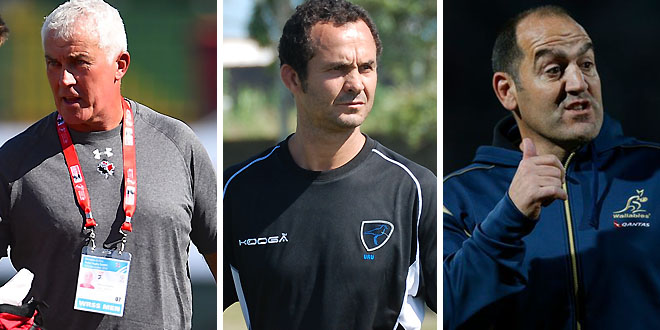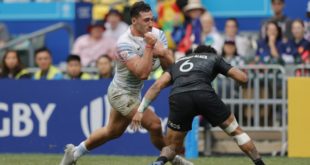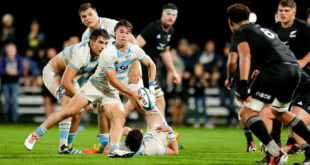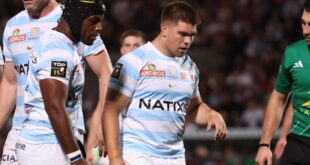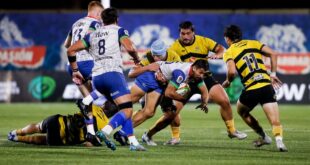Choosing standout coaches is always a difficult task. Player and team success can usually be identified by simple objective metrics, at least in the initial stage. Coaches, however, are often at the mercy of the players at their disposal. Certainly achievements are laudable and a simple way to sniff out candidates, but winning a championship does not by itself define great coaching.
Similarly it’s sometimes the support staff who are truly exceptional – a scrum guru or a visionary attack coach. At the same time when it comes to elite level rugby arguably the most important task is picking the right team and finding out how to motivate them to perform on game day. Our nominees have demonstrated the ability to elevate quality rugby players into match day winners.
HONORABLE MENTION
Mario Ledesma has now completed his time as Forwards Coach of Australia, and the legendary Pumas hooker bowed out in style. His final match in the role saw the Wallabies defeating New Zealand in Brisbane. During the 44-year-old’s time with the team the Wallabies set piece improved out of sight. The scrum was able to bully Los Pumas, a previously unthinkable feat. Ledesma now takes on a new challenge as Head Coach of the Jaguares.
Another former Puma had a solid year in France. That was Gonzalo Quesada. He ended his four year run as Head Coach of Stade Français on a high. Having won the Top 14 title in 2015 he added the Challenge Cup title to his resume in 2017. The 25-17 win over Gloucester was Stade Français’ first European crown. In mid-2017 Quesada moved to Biarritz to take charge of the Pro D2 club. He is now being eyed-up as a potential replacement for Daniel Hourcade, whose tenure as Pumas coach is under question.
The USA saw success with numerous teams in 2017, one of those being at the Women’s Rugby World Cup in Ireland. Entering the tournament there were plenty of questions level at the Women’s Eagles. Could they compete at that level? Were the right players chosen? Was their preparation enough? Pete Steinberg‘s intuitions, in the end, proved to be correct. His team played above their estimation on paper and finished in 4th overall, a respectable accomplishment and one Steinberg can be proud of as he moves on to new challenges.
Those who have been following South American rugby with regularity will have raised their eyebrows when it was announced that Esteban Meneses would be taking over Los Teros following the 2015 World Cup. They did so not because it was a strange move, but because he was a highly regarded young coach and would be bringing with him the best practices of Argentine rugby. With him came the establishment of the High Performance Center at the Estadio Charrúa and it’s no coincidence that Los Teros had their best ever year in 2017. Can he take them a step further up the ladder in 2018?
THE WINNER
It’s often the case that the Head Coach of the best team is a shoe-in for the an award. Like the Director of Best Movie at the Oscars. That isn’t the case this year. In fact there was surprisingly little debate that Damian McGrath was the outstanding candidate from 2017. When he came in the Canadian Men’s Sevens program was in turmoil – the players were on strike, the team crashed out of the Olympic qualifiers, and they had suffered a poor season on the 2015-16 HSBC Sevens Series, not once reaching the Cup Quarter Finals.
Enter McGrath. Samoa’s loss was Canada’s gain. A late arrival meant that the first two stops on the calendar were much the same, but with just a few extra weeks to prepare the team Canada stunned commentators with a spot in the Semi Finals at Wellington. Injuries curtailed their Sydney tournament but they would go on to make the Quarter Finals in five of the last six stops, including an historic first-ever Cup Final victory in Singapore, followed by a Bronze Finish in London.
McGrath hasn’t just turned around the team, he’s consistently made himself available to the rugby community from coast-to-coast. For his exceptional contributions to Canadian rugby since his arrival, Damian McGrath is the 2017 ARN Coach of the Year.
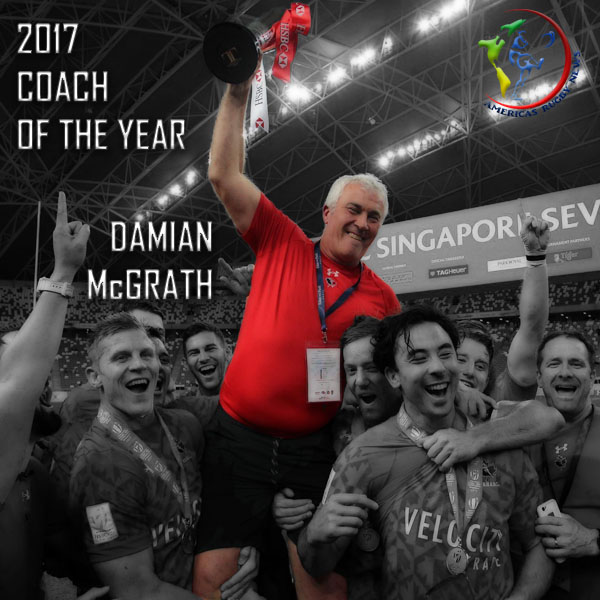
 Americas Rugby News Rugby news from across the Americas!
Americas Rugby News Rugby news from across the Americas!
